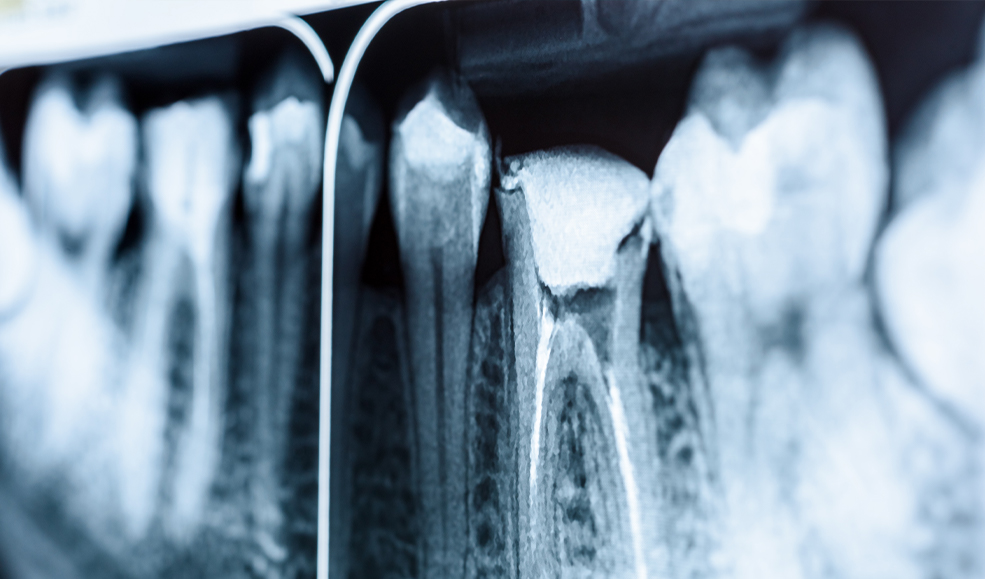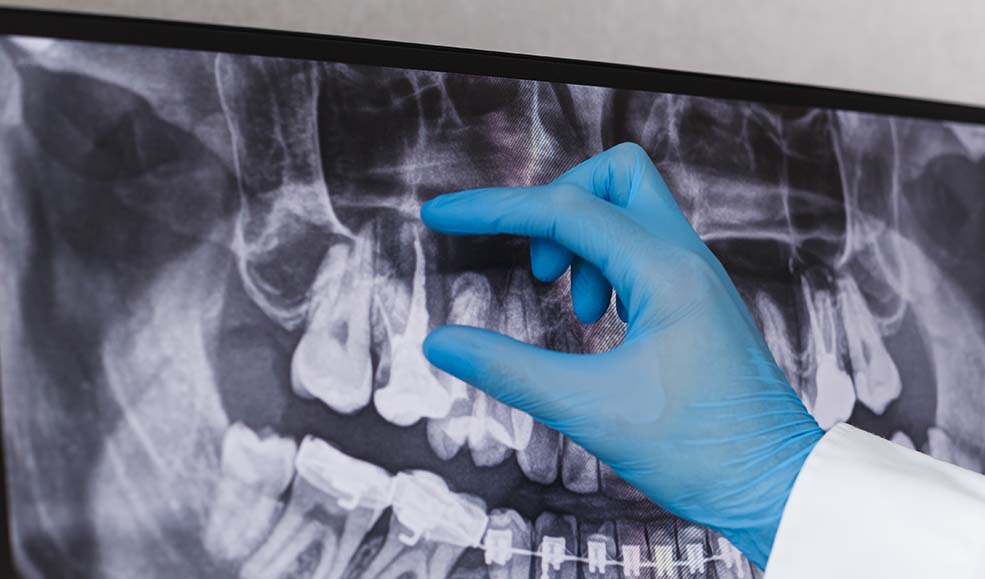https://outdoor.dental/wp-content/uploads/2024/03/sleep-apnea-man-min-1.jpg
Can a Deviated Septum Cause Sleep Apnea?
While the causes of sleep apnea can vary, one often overlooked factor is a deviated septum. The relationship between a deviated septum and sleep apnea can be complex. Evidence suggests that a deviated septum may play a significant role in the development or severity of sleep apnea by affecting nasal airflow and breathing patterns during sleep. […]
Read More…
March 22, 2024
Dr. Jay Patel
https://outdoor.dental/wp-content/uploads/2024/03/Are-There-Different-Types-of-Dental-Crowns-Hero-min.jpg
Are There Different Types of Dental Crowns?
Different types of dental crowns can include porcelain, ceramic, composite, metal, and Cerec same-day crowns. […]
Read More…
March 7, 2024
Dr. Jay Patel
https://outdoor.dental/wp-content/uploads/2024/01/When-Do-Children-Start-Losing-Their-Teeth-Hero-min.jpg
When Do Children Start Losing Their Teeth?
Children typically start losing their teeth between the ages of 6–8, but every child is different. While baby teeth may seem like they’re just there to be placeholders for adult teeth, they play an important role in a child’s overall oral health. […]
Read More…
January 29, 2024
Dr. Jay Patel
https://outdoor.dental/wp-content/uploads/2024/01/Untitled-design-2024-01-05T133344.785-min.png
How to Properly Clean Dentures
Just like natural teeth, dentures require proper care and maintenance to keep them clean and reduce discoloration and bad odours. Clean your dentures every day by removing them before bed and soaking them in a special cleaning solution overnight. […]
Read More…
January 5, 2024
Dr. Jay Patel
https://outdoor.dental/wp-content/uploads/2023/12/What-Are-Same-Day-Dental-Crown-Services-Hero-min.jpg
What are Same-Day Dental Crown Services?
While traditional crown procedures can take several visits and weeks to complete, same-day dental crown services offer a quick and convenient alternative. […]
Read More…
December 18, 2023
Dr. Jay Patel
https://outdoor.dental/wp-content/uploads/2023/11/Top-10-Foods-to-Avoid-for-Healthier-Teeth-Hero-min-1.jpg
Top 10 Foods to Avoid for Healthier Teeth
Some foods and beverages can cause more harm than good, leading to tooth decay, cavities, and gum disease. These can include sugary and acidic foods and drinks, sticky candies, dried fruit, starchy foods, and coffee. […]
Read More…
November 29, 2023
Dr. Jay Patel
https://outdoor.dental/wp-content/uploads/2023/11/young-girl-dental-anxiety-min.jpg
How to Overcome Dentophobia
If you’re scared of going to the dentist and the mere thought of getting a dental checkup makes your heart race and your palms sweat, you may have dentophobia, a fear of going to the dentist. Those with dental anxiety tend to avoid going to the dentist entirely due to fear. However, avoiding the dentist […]
Read More…
November 7, 2023
Dr. Jay Patel
https://outdoor.dental/wp-content/uploads/2023/09/sleep-apnea-man-min.jpg
Can You Have Sleep Apnea without Snoring?
When we think of sleep apnea, most of us imagine a person who snores loudly and frequently wakes up gasping for air. However, some people with sleep apnea experience little to no snoring at all. […]
Read More…
September 20, 2023
Dr. Jay Patel
https://outdoor.dental/wp-content/uploads/2020/12/OutdoorDental-Homepage-Blog-Image1.jpg
What’s the Difference Between a Dental Bridge and an Implant?
Many Canadians are living with missing teeth. They avoid smiling, laughing, and struggle with self-confidence. Dental bridges and implants are two restorative treatments to address missing teeth. Generally, dental bridges are a simpler treatment, while dental implants are a surgical option. […]
Read More…
April 28, 2023
Dr. Jay Patel
https://outdoor.dental/wp-content/uploads/2020/12/OutdoorDental-Homepage-Blog-Image2.jpg
Digital Dentistry: The Future of Dental Care
Digital dentistry is dental technology using computer-based software. Digital technology allows dental professionals to examine, diagnose, and manage your oral health. […]
Read More…
April 13, 2023
Dr. Jay Patel
https://outdoor.dental/wp-content/uploads/2020/12/OutdoorDental-Homepage-Blog-Image3.jpg
Can Wisdom Teeth Cause Jaw Pain?
Can Wisdom Teeth Cause Jaw Pain? For some people, their wisdom teeth come in around 16 and never cause a problem. But for others, wisdom teeth become potential sources of jaw pain, infection, and mouth damage. And eventually, their dentist may recommend removing them. Seeing your dentist for regular exams and cleanings twice a year […]
Read More…
March 17, 2023
Dr. Jay Patel
Is Sleep Apnea Hereditary?
Is Sleep Apnea Hereditary? Sleep Apnea is a disruptive sleep disorder. It can become potentially dangerous because breathing repeatedly starts and stops throughout the sleep cycle. You may be related to someone who has sleep apnea. While it’s not proven that sleep apnea is a hereditary condition, Genetic factors can increase your likelihood. People who […]
Read More…
February 27, 2023
Dr. Jay Patel
How Do Dentists Fix a Cavity?
No one wants to hear they have a cavity. However, when they’re caught early during your regular dental checkups or dental hygiene appointments, fixing it can prevent further problems. Fixing a cavity is a common dental procedure that repairs a small hole or “cavity” that has formed in your tooth from decay. The decay is […]
Read More…
January 26, 2023
Dr. Jay Patel
https://outdoor.dental/wp-content/uploads/2022/12/image-18-min-1.png
How Often Should I Get My Teeth Cleaned?
Brushing and flossing should be regular at-home oral care habits. However, that doesn’t mean your teeth and gums are safe from tooth decay and gum disease. Regular dental checkups and teeth cleanings for adults and children can ensure healthy gums, bright smiles, and the early detection of cavities and other oral health issues. So, how […]
Read More…
December 1, 2022
Dr. Jay Patel
https://outdoor.dental/wp-content/uploads/2022/11/sleep-apnea-man-1-min.jpg
Is Snoring a Sign of Sleep Apnea?
However, as the name suggests, sleep apnea occurs when you sleep, so you may not even know you have it. A common side effect is snoring. But not always. […]
Read More…
November 16, 2022
Dr. Jay Patel
https://outdoor.dental/wp-content/uploads/2022/10/pod-image-38-min.png
How Long Do Dental Crowns Last?
Dentistry is all about preserving your smile, and advancements in family dentistry have made that more possible than ever. Your dental professional is well equipped to perform dental procedures such as dental crowns that can help keep your smile healthy and functional. […]
Read More…
October 3, 2022
Dr. Jay Patel
What Does Invisalign Do?
A lot of people want to improve their smile but believe that traditional metal braces are their only option. Fortunately, that picture-perfect smile you dream of is achievable without them. You don’t have to be self-conscious about your Invisalign aligners because they’re nearly invisible. Invisalign is an orthodontic treatment that uses a system of clear […]
Read More…
August 25, 2022
Dr. Jay Patel
https://outdoor.dental/wp-content/uploads/2022/11/sleep-apnea-man-1-min.jpg
Can a Dentist Diagnose Sleep Apnea?
Wondering if you might be suffering from sleep apnea? Learn how your Calgary dentist can help you diagnose and about treatment options like Vivos appliances. […]
Read More…
August 5, 2022
Dr. Jay Patel
Dental Appliance or CPAP?
If you or someone you know suffers from sleep apnea, you may be wondering how to treat the condition that causes it. People who can not sleep properly because of sleep apnea, know how disruptive it can be. You wake up exhausted and feeling like you haven’t slept at all, or you just feel like […]
Read More…
June 15, 2022
Dr. Jay Patel
Modern dentures: New technology vs traditional dentures
Modern dentures: New technology vs traditional dentures Your teeth are some of the most important parts of your body, allowing you to eat food, speak, and smile with confidence. After your teeth have been damaged by age or decay, you may be wondering if getting dentures is the right choice for you. While there are plenty […]
Read More…
May 30, 2022
Dr. Jay Patel
3 Ways You Can Manage Your DENTAL ANXIETY – And One Simple Solution To Get Rid Of It Forever. Now available at Outdoor Dental in Calgary SE.
Fear of the dentist, otherwise known as dental anxiety, affects millions of Canadians each year. Dental anxiety often prevents people from seeking necessary dental care, and can result in tooth decay and pain that could have been avoided with routine maintenance. So what are some ways to manage your dental anxiety? Dr. Jay Patel at Outdoor Dental […]
Read More…
April 25, 2022
Dr. Jay Patel
5 Likely Reasons Why You Snore A Lot
As a dental clinic in Seton, Calgary, SE that provides Solea sleep snoring treatment, we have encountered many myths about why people snore and how to stop snoring. While snoring research continues to develop as a scientific study, the current most commonly recognized factors that contribute to snoring are the following: #1. The anatomy of your mouth and sinuses The way […]
Read More…
March 31, 2022
Dr. Jay Patel
Are one-visit crowns as good as regular crowns?
we’ll let you know exactly what’s going to happen we’ll make you comfortable and at ease we’ll provide clarity about cost we’ll ensure the patient won’t feel any pain we’ll leave a healthy foot print on your smile! […]
Read More…
January 27, 2022
Dr. Jay Patel
Is teeth whitening safe?
You want it. Your neighbor wants it. Everyone wants it! However, is teeth whitening safe? Whiter teeth are a must in today’s world, and with safer, more efficient methods available, more people are taking advantage of this service. Whether you need whiter teeth for those holiday greeting cards or to showcase a more confident smile, […]
Read More…
December 30, 2021
Dr. Jay Patel
Do dental veneers ruin your real teeth?
Feeling uncertain or confused about the function, purpose and the application of dental veneers makes total sense. The short answer is, dental veneers do not often ruin your natural teeth. Like with any type of dental treatment, we can’t offer any 100% guarantees about the results of your treatment. However, with care, attention and maintenance, […]
Read More…
November 14, 2021
Dr. Jay Patel
Tips for healthy gums from our dental hygienist
Have you heard? Your gum health doesn’t only affect your oral hygiene, but it can also affect your overall health. That’s right. How well you take care of your gums can influence different aspects of your health including your emotional well-being, nutrition intake, and possibly even your lung and heart health. Lack of proper care […]
Read More…
October 18, 2021
Dr. Jay Patel
Are root canals painful?
The surprising truth about root canals is that in general, they should not be painful at all. A root canal appointment can often conjure up feelings of dental anxiety. What is it about root canal treatment/therapy (RCT) that causes this trepidation? It usually comes from the fact that so many of us have heard horror […]
Read More…
September 30, 2021
Dr. Jay Patel
What is Laser Dentistry?
Dentists use lasers to treat a number of different dental conditions. The laser is an instrument which creates light energy in a focused, narrow beam that can be used to remove decay, or shape teeth and tissue. Dentists use lasers to treat tooth decay, gum disease, and gummy smiles. Laser procedures often eliminate the need […]
Read More…
July 26, 2021
Dr. Jay Patel
Dental discounts for Seniors Calgary SE
For seniors, maintaining oral health is extremely important as it can affect overall health. Conversely, other health issues, as well as medications, can compromise your mouth and teeth. However, many seniors are on fixed incomes and are budget conscious. They are concerned about the costs of dental care. Seniors are able to receive discounts at […]
Read More…
June 7, 2021
Dr. Jay Patel
What is solea sleep?
If you are a snorer, you might have already tried many solutions to address this problem. There are plenty of over-the-counter anti-snoring solutions and gadgets which are promoted as 100% effective, but they’re not. You’ve tried losing weight, not drinking alcohol and night, and trying to sleep on your side. But nothing seems to work, […]
Read More…
May 1, 2021
Dr. Jay Patel
Dental implants are without a doubt the best solution for missing teeth but …
Dental implants Calgary SE cost could be a concern Usually, dental implants are not covered by insurance Dental implants require oral surgery Over time, bone loss can occur around the implant Treatment takes significant time The bottom line is that there are disadvantages to the dental implant process. The reality is the pros outweigh the […]
Read More…
April 27, 2021
Dr. Jay Patel
Can I get rid of sleep apnea?
Dr. Jay Patel at Outdoor Dental provides effective Sleep Apnea treatment in Calgary SE. Lack of sufficient sleep can make you feel exhausted. How about you? Finding the right solution for a Sleep Apnea Disorder can be a challenge. With so much Internet information out there, the volume can be overwhelming and confusing sometimes. There […]
Read More…
March 2, 2021
Dr. Jay Patel
Invisalign Braces Calgary SE
More and more adults are interested in Invisalign Calgary SE because gaps between teeth uneven teeth crooked teeth over, under, and cross bites self esteem issues […]
Read More…
February 27, 2021
Dr. Jay Patel
Are one-visit crowns as good as regular crowns?
The answer to how long it takes to get a dental crown, depends on the type of technology offered by the dentist. Traditional crown placements can take two appointments that are weeks apart. However, with new dental crown restorative technology provided by CEREC, your dental crown can now be placed in one visit. Here at Outdoor Dental […]
Read More…
January 25, 2021
Dr. Jay Patel
Bad breath is…not sexy
Something in your mouth is wrong People around you will notice It can affect your social life It can affect your business life The cause could be gum disease (gingivitis) Our recommendation: Do something about it – FAST […]
Read More…
January 24, 2021
Dr. Jay Patel
Do not underestimate periodontal gum disease
it can cause the gums separate from the teeth it can harm the bone structure it causes bad breath it loosens and destabilizes the teeth you may ultimately lose your tooth/teeth Our recommendation: Let’s do something about it – FAST. […]
Read More…
December 22, 2020
Dr. Jay Patel
https://outdoor.dental/wp-content/uploads/2020/12/OutdoorDental-Homepage-Blog-Image1.jpg
Happy Smiles
[…]
Read More…
December 15, 2020
Dr. Jay Patel
https://outdoor.dental/wp-content/uploads/2020/12/OutdoorDental-Homepage-Blog-Image2.jpg
Happy Dentures
[…]
Read More…
December 15, 2020
Dr. Jay Patel
https://outdoor.dental/wp-content/uploads/2020/12/OutdoorDental-Homepage-Blog-Image3.jpg
Happy Tools
[…]
Read More…
December 15, 2020
Dr. Jay Patel
Why use a sports guard?
Keep what you have; Protect your teeth a hostile elbow can cause major damage avoid chipped or broken teeth you will feel stronger with a sports guard avoid nerve damage GO FOR SAFE! […]
Read More…
November 20, 2020
Dr. Jay Patel
Dentures Calgary SE
Are you considering dentures? Dentures have changed dramatically since your grandparents’ time. There are many types of dentures, and you may be familiar with some of them. The most common kind are the full set of dentures which are removed at night for cleaning. Now there are fixed dentures, partial dentures, permanent dentures, as well […]
Read More…
October 19, 2020
Dr. Jay Patel
What are the TMJ jaw pain symptoms?
restricted jaw movement clicking, popping joint sounds facial pain muscle spasms ear ringing (Tinnitus) malocclusion (Bad bite) inflammation eye, sinus pain neck, shoulder pain Most likely, you have a TMJ Disorder (Temporomandibular Joint Disorder) We believe that finding the right dentist for your TMJ Treatment should be easy and simple What is the treatment for […]
Read More…
September 17, 2020
Dr. Jay Patel
Differences between dental crowns and bridges
Dental crowns and bridges both serve the purpose of giving you a full, healthy and functional smile. Crowns are a porcelain shell Crowns help support existing teeth and are often used to help: Correct broken, chipped, misshapen or decaying teeth Prevent damage from occurring to brittle teeth Cover tooth discolouration to whiten your smile Provide greater […]
Read More…
August 16, 2020
Dr. Jay Patel
Missing teeth … are not pretty
speaking will be more difficult eating issues are common emiling becomes shame your teeth will shift because of the extra space your confidence will take a hit Do something. Go to your dentist. And find a solution. […]
Read More…
May 11, 2020
Dr. Jay Patel
What to expect when getting teeth removed?
clarity: We’ll explain in details anxiety: There’s nothing to fear comfort: We’ll make you at ease Giving your trust to a dentist can make you feel concerned about your overall health, your looks, and the cost.BOOK NOW How do tooth extractions work? When you have a tooth that is broken or decayed, you want the […]
Read More…
April 10, 2020
Dr. Jay Patel
Why get white fillings?
Get rid of metal/mercury fillings metal fillings can be toxic mercury can be harmful to your body go for a cleaner look easier maintenance laugh out loud again Giving your trust to a dentist can make you feel concerned about your overall health, your looks, and the cost.BOOK NOW Let’s make ’em pearly white Even […]
Read More…
March 8, 2020
Dr. Jay Patel
Suresmile Aligners – More than just invisible braces
Get the gift of a beautiful smile Are you unhappy with your smile because of crooked teeth or gaps? You might be wondering how to navigate through all the different types of adult braces and family braces that are available now. Some are invisible braces, and some are invisible liners. With so many more choices, […]
Read More…
February 20, 2020
Dr. Jay Patel
A visit to a kids dentist means…
Nothing to be afraid of! always friendly fun environment we listen to you no “surprise” treatments professional advice Giving your trust to a dentist can make you feel concerned about your overall health, your looks, and the cost. […]
Read More…
January 31, 2020
Dr. Jay Patel
We are open for regular services in SE Calgary!
We Are Open for Regular Services! At Outdoor Dental, your health and safety is always our number one priority. In full compliance with the Alberta Dental Association & College, we are now performing all regular dental treatments with rigorous safety protocols in practice. We are very excited to reconnect with you and continue to leave […]
Read More…
January 30, 2020
Dr. Jay Patel
Are Outdoor Dental’s Drill-Free Fillings Safe for Kids?
Getting your child to visit the dentist can be a hassle. Kids often experience general anxiety around a dental visit, which can significantly increase when they find out that they have to have extensive work done, such as fillings. Nobody particularly enjoys having a drill in their mouth, but how safe are drill-free fillings for […]
Read More…
January 30, 2020
Dr. Jay Patel
How a Single Device Can Treat Your Sleep Apnea, TMJ, and Dental Misalignment
Sleep apnea happens when the upper airway muscles relax while sleeping, preventing you from getting enough air. If you have sleep apnea, you may suffer from interrupted sleep and regularly wake up feeling tired. What’s more, sleep apnea is a severe cardiovascular health hazard. Individuals with untreated sleep apnea have twice the likelihood of experiencing […]
Read More…
January 30, 2020
Dr. Jay Patel
What does snoring do to your partner?
If you are a snorer, you are already aware that your snoring affects your partner. Snoring can disrupt not only your sleep, but it can also strain your relationship and cause great resentment. If you’ve received an elbow in the ribs in the night on many occasions, you know that you can’t ignore the problem you are creating for your partner. Not only are you waking up still feeling tired, but so is your partner. […]
Read More…
January 30, 2020
Dr. Jay Patel
Sensitive Teeth? 12 Helpful Tips from Your Dentists in Calgary SE
Do you ever feel a zing in one or more teeth when you eat something sweet, cold, or hot? Sensitivity is a common dental issue – one that causes many people to miss out on some of their favorite foods. Thankfully, your dentist in SE Calgary, Dr. Jay Patel, has some tips that can keep […]
Read More…
January 28, 2020
Dr. Jay Patel
New Year, New You: SureSmile Invisible Braces for a Beautiful Smile
Many people feel self-conscious about their smile. They’re embarrassed by their crowded, crooked teeth – so much so, that some even avoid smiling. Invisible braces can provide people with a beautiful, straight smile, increasing their self-confidence. Unfortunately, some avoid investing in adult braces. The cost turns them off. They don’t feel they have enough time. […]
Read More…
January 25, 2020
Dr. Jay Patel
Fear of the dentist
Do dentists’ needles and drills make you anxious? If the pain of a dentist’s needles and even just the sound of the dentist’s drill makes you have dental anxiety, you are not alone. Painful dental treatments in the past and fear of dentists’ needles keep many people away from the dentist, even when they truly need […]
Read More…
January 22, 2020
Dr. Jay Patel
Accepting Emergencies during COVID-19: Calgary SE Emergency Dentist Explains What You Need to Know
We’d like to start by checking up on you. How are you adjusting? We understand it’s hard not to be able to hike in the mountains or go camping this time of the year, but you are doing your part in flattening the curve by staying home and keeping with social distancing measures. At this […]
Read More…
January 21, 2020
Dr. Jay Patel
Did you know your dentist can help with sleep apnea?
The most well-known sleep apnea solution involves a Continuous Positive Air Pressure (CPAP) machine. These machines can be inconvenient for travel and require thorough cleaning on a daily basis. Some patients say they are uncomfortable to wear while trying to sleep, and often still wakes up tired from a poor night of sleep. Many people […]
Read More…
January 18, 2020
Dr. Jay Patel
Signs You’re Clenching and Grinding Your Teeth – Dentist Calgary SE Explains
Does your partner ever complain about you grinding your teeth at night? Do you ever wake up with a sore jaw and sensitive teeth? You might very well be clenching your teeth at night. Bruxism, or grinding your teeth, can have serious consequences to your teeth, in addition to your overall well being. What can […]
Read More…
October 24, 2019
Dr. Jay Patel
How to Stop Grinding Your Teeth at Night
Grinding your teeth is actually a pretty common occurrence. Everyone does it from time to time. It becomes a problem when it’s happening consistently and starts to cause you pain. Luckily, there are ways to stop grinding your teeth at night. Signs of Teeth Grinding There are certain signs that you can be on the […]
Read More…
September 19, 2019
Dr. Jay Patel
Got Bad Dental Work in Mexico? Common Emergencies We Fix
Are you experiencing tooth pain after getting dental work in Mexico? You may need to find an emergency dentist that can fix whatever’s wrong. Why People Go to Mexico for Dental Care Why would someone go to Mexico for dental care? Mexico offers lower prices. While that may sound good, the lower prices could mean […]
Read More…
August 19, 2019
Dr. Jay Patel
Suspecting Sleep Apnea? Here Are Signs and What You Can Do About It
Sleep apnea is a common form of sleep disorder that can impact your health and significantly impair the quality of sleep you receive each night. The American Sleep Apnea Association estimates that 22 million Americans suffer from some form of sleep apnea, but that 80 percent of cases go undiagnosed. If you are interested in […]
Read More…
July 28, 2019
Dr. Jay Patel
How to Manage Dry Mouth: Simple Solutions You Can Try at Home
Occasional dry mouth (xerostomia) is annoying, but chronic dry mouth can be downright painful. Thankfully, some steps will give you some relief. Today, we’ll show you how to manage dry mouth so you can stay comfortable and keep your teeth and gums healthy. How to Manage Dry Mouth at Home Dry mouth can have an […]
Read More…
July 23, 2019
Dr. Jay Patel
Improve Your Gut Health, Improve Your Breath
Having clean, fresh breath does boost your confidence and self-esteem. Unfortunately, what is happening on the inside of your body or stomach can affect your breath. As such, it is important to improve your gut health to minimize any instance of embarrassing dental hygiene issues. Today, as your Calgary SE dentist, I will share a […]
Read More…
June 10, 2019
Dr. Jay Patel
Cannabis and Your Oral Health – Dentist Calgary Explains
Maintaining good oral health is vital to your overall health and wellbeing. Not only does it impact your physical appearance, but you can have serious health issues as well. Today, the focus will be on how to maintain good dental practices, even with the use of cannabis products. Oral Health Tips From Our Dentist in […]
Read More…
May 24, 2019
Dr. Jay Patel
Why we switched to a plant based teeth varnish
We love going above and beyond for our patients! We want everyone who walks through our door to have access to the newest and safest dental technology available, so we have recently made a big switch… We now offer plant-based fluoride varnishes instead of our old resin-based varnish at our Seton Calgary dentist office. Research […]
Read More…
April 30, 2019
Dr. Jay Patel
Same-Day Dentistry: Why is it ideal for Dental Emergencies?
Every outdoorsman knows that pain should be taken for granted. When you experience pain in the leg, you have it checked out immediately to make sure there’s no serious problem. And you’re aware that the slightest hesitation can make all the difference for your recovery. Do you do the same with the pain in your […]
Read More…
March 28, 2019
Dr. Jay Patel
The Differences Between Traditional Braces and Invisalign in Calgary
If you’ve learned that you need to correct your teeth’s alignment, there are a few different approaches that you, Dr. Patel or Dr. Benavides can take — traditional braces or clear aligners like Invisalign or SureSmile. Each option has its pros and cons. Here, you’ll learn some of the differences between metal braces and Invisalign […]
Read More…
March 21, 2019
Dr. Jay Patel
How to curb dental phobia with drill-free fillings – Seton dentist explains
Do you feel apprehensive when it’s time to go to your Auburn Bay and Seton dentist? Nearly everyone feels a little nervous before a dental health appointment. But some people are downright terrified of even stepping foot in a dental office. Severe dental phobia has even led some to avoid seeing their dentist altogether. Unfortunately, […]
Read More…
February 1, 2019
Dr. Jay Patel
[VIDEO] 3 ways to prepare for your child’s first dental visit – Calgary dentist explains
The first time your child does anything, it’s a big deal. In fact, it’s not unusual for a small celebration to follow something as mundane as eating his or her first candy or singing along to a song for the first time. But when it comes to the child’s first trip to the dentist, a […]
Read More…
January 30, 2019
Dr. Jay Patel
[VIDEO] Ask about the Alberta Dental Fee Guide – we follow it!
2018 was a great year for patient comfort at our Seton dentist office, OUTDOOR.dental We did some great things in 2018! We brought in the iTero 3D imaging machine so our Invisalign patients can actually see what their teeth will look like before committing to Invisalign or clear braces. We also welcomed drill free and […]
Read More…
December 22, 2018
Dr. Jay Patel
Dr. Jay’s favourite hikes and activities in the winter
Winter has the reputation to keep many of us at home. The options seem limited. Why would anyone want to be outside when it’s below 0℃? Ski, snowboard, tobogganing? Sure, those activities are fun. But that’s not all what winter is about. Hiking is still a great way to be outside with the family, and […]
Read More…
November 30, 2018
Dr. Jay Patel
Seton, Calgary is growing! Here are 6 things we love about our neighbourhood
Even before The Economist named Calgary one of the most liveable cities in the world, we were already huge fans of living here! Calgary is the perfect mix of urban and outdoor living; you can enjoy a breathtaking hike in the morning, partake in a little retail therapy in the afternoon, and be chowing down […]
Read More…
October 30, 2018
Dr. Jay Patel
The All-Natural Toothpaste Trend: A guide to the best natural toothpastes
The tendency toward all-natural products has been increasing in recent years. There have always been people who chose to go the natural route. But it seems like more people are willing to try natural products these days. This includes things like natural toothpastes. I like the idea of putting as few chemicals in my body […]
Read More…
August 8, 2018
Dr. Jay Patel
Proven “miracle” Results? Get the charcoal scoop from a teeth whitening dentist
I’m always so excited when people tell me they’re doing all they can to live a healthy lifestyle. And I back their efforts, including when they want to use all-natural dental products. But I don’t offer blind support. Of paramount importance is whether these products are safe for my patients to use or not. One […]
Read More…
July 19, 2018
Dr. Jay Patel
Should you get dental implants in Mexico or from a local Calgary dentist?
Do you love getting a bargain? Who doesn’t? Everyone tries to take advantage of a good deal whenever possible. In fact, quite a few people take their bargain hunting to the next level by traveling to other countries for their healthcare – including dental care. It isn’t uncommon to hear of patients getting dental implants […]
Read More…
June 15, 2018
Dr. Jay Patel
Does Invisalign® work faster than braces? Calgary dentist covers Invisalign® pros and cons
Introduced in the 90s, Invisalign® braces quickly became the dental aligners of choice by both patients and their dentists. However, I do find that a lot of patients still have quite a few questions about this product, despite it being so well-known. Patients aren’t quite sure how the aligners work, or what the pros and […]
Read More…
May 7, 2018
Dr. Jay Patel
Drill Free Fillings FAQ’s – South Calgary dentist explains
Many people have a difficult time with the sound and feel of traditional drills. They react the same way as they do when they hear nails on a chalkboard. It’s definitely hard to relax during a procedure when you’re experiencing that type of a reaction. If you’ve had a similar reaction to the traditional procedure […]
Read More…
April 9, 2018
Dr. Jay Patel
Calgary dental clinic now offers drill and freezing-free fillings
No one likes to hear that they have a cavity. It brings up a lot of feelings. Guilt, for instance, because we feel our home care wasn’t up to par. Or, because we’ve consumed way too many sugary foods lately. And of course, there’s always a little bit of fear. It isn’t uncommon for people […]
Read More…
March 16, 2018
Dr. Jay Patel
Are single visit dental crowns more affordable? South Calgary dentist explains
Have you ever cracked tooth? If so, you know just how uncomfortable this can be. This condition can causes temperature sensitivity and discomfort with biting pressure. And if it’s not taken care of in a timely manner, the crack can get so bad that the tooth could fracture. Whether you have a fractured or cracked […]
Read More…
February 15, 2018
Dr. Jay Patel
Are e-cigarettes and vapes bad for your teeth? Calgary dentist explains
We’re all well-aware of how bad smoking is for our health. It can lead to heart disease, cancer, and emphysema. Smoking can also lead to dental problems. But what about vaping? Are e-cigarettes bad for your teeth, too? Actually, some studies are showing that vaping can be just as bad for your teeth as regular […]
Read More…
January 10, 2018
Dr. Jay Patel
Cold Sore Guide: Effective winter cold sore treatments
It’s the holiday season – a fun yet stressful time of year for most of us. This is the season for comfort foods, lots of time with family and friends, and unfortunately, it’s also the time of year when cold sores are most prevalent. Isn’t it upsetting when you start to feel that tingling sensation […]
Read More…
December 4, 2017
Dr. Jay Patel
Diabetes and Dental Problems: What’s the Relationship?
More and more people are recognizing the link between oral health and their general health. This is mainly due to the slew of recent studies pertaining to the correlation between heart disease and gum disease. But we all need to be aware that heart disease isn’t the only condition related to our oral health. Diabetes […]
Read More…
November 10, 2017
Dr. Jay Patel
Tooth-healthy lunches that save and protect
We all know how important it is to pack a nutritious lunch for your child before they head off to school. But what goes into making the right choice for healthy snacks? Tooth-healthy lunches can help a child avoid future dental problems. Get them used to a balanced diet and save money on dental procedures […]
Read More…
October 10, 2017
Dr. Jay Patel
Dr. Jay shares his top 5 fall hikes near Calgary
How does this family dentist in Calgary spend the fall weekends? Catching all the amazing scenery our beautiful region has to offer. Early fall at the east end of the Rockies is perfect for hiking. The crowds in Banff have thinned and the weather is not as sweltering hot. Not to mention the golden larches […]
Read More…
September 8, 2017
Dr. Jay Patel
Pregnant? Here’s what to ask your dentist
Some of you may know, my wife and I are expecting our second daughter. By the end of 2017, I’ll be officially outnumbered in the family! During her pregnancy, Caryn has to maintain her overall health for her sake as well as the baby’s. That goes with all my pregnant patients: in order for your […]
Read More…
August 8, 2017
Dr. Jay Patel
What Will Happen If I Lose This Tooth?
Occasionally, we get a patient coming in to ask about missing tooth options. What will happen if I lose this tooth? Do I really need to replace it? It can be emotionally painful to have to see a tooth go. Some patients initially feel like they’re destined to have a space in their mouth forever. […]
Read More…
July 5, 2017
Dr. Jay Patel
Your Calgary Dentist: Dr. Patel’s 5 favorite family-friendly hikes
We’re really lucky to be surrounded by an abundance of natural beauty here in Calgary, and I try to spend as much time as possible in it. If you’re anything like me who loves being outside and exploring nature with the family, hiking is my go to activity. I love to share my hiking experiences […]
Read More…
June 14, 2017
Dr. Jay Patel
A guide to dental care for seniors
While age doesn’t have much to do with oral health, the conditions that come with old age do. Dental care for seniors needs to look a bit different than oral care for any other age. Arthritis and drugs used for various illnesses can make it harder to brush and floss, and can lead to changes […]
Read More…
May 3, 2017
Dr. Jay Patel
Your Calgary family dentist’s ultimate guide to oral cancer prevention
April is Oral Cancer Awareness Month. If you’re like me, you are curious about why we have special months like this. Well, I can tell you that Oral Cancer Awareness Month is no joke. More people need to be aware of this disease. The latest reports show that oral cancer is on the rise. And, […]
Read More…
April 19, 2017
Dr. Jay Patel
Dental Care for Young Children: Why baby teeth are important
Are baby teeth just as important as adult teeth? Many patients who come to our Calgary family dental office—and others around the world—tend to think baby teeth aren’t important. They conclude that because baby teeth eventually fall out, they’re not as vital. I understand why people feel this way, but the truth is that primary […]
Read More…
March 27, 2017
Dr. Jay Patel
Dental Care for Children: Why Calgary childhood decay rates are rising
Calgary children are facing a dental conundrum. Decay rates in Calgary have steadily been on the rise over the past five years. More children are not only getting cavities, they’re getting more of them. A family dentist in Calgary, like myself, may see children who have very serious decay issues, with decay spreading rapidly. What […]
Read More…
February 16, 2017
Dr. Jay Patel
Invisalign Clear Braces: A great alternative for those with an active lifestyle
Living in Calgary, we know that our backyard has a lot to offer. At Outdoor Dental, we understand that many of our patients are balancing busy lifestyles while being physically active. Over the past couple months, we had some patients mention that they’re interested in orthodontics not limited to traditional braces. They bring up Invisalign […]
Read More…
January 24, 2017
Dr. Jay Patel
The Outdoor Lovers’ Gift Guide: OUTDOOR dental’s Top 10 Picks
Have you finished all of your shopping for the 2016 holiday season? If not, we have some great ideas for you, particularly if your list includes some outdoor enthusiasts. As you know, your Seton family dentist, Dr. Jay Patel, and the rest of us at OUTDOOR dental love the outdoors. We think Calgary is one […]
Read More…
December 13, 2016
Dr. Jay Patel
Custom mouthguards vs store bought
Southeast Calgary Dentist Explains Custom Mouthguards vs Store Bought Did your dentist our your family doctor suggest night mouthguards for you or your child to stop grinding your teeth at night and prevent damage to them? You are then faced with a difficult choice: should you buy one of the mouthguards stores and pharmacies sell, […]
Read More…
November 7, 2016
Dr. Jay Patel
A special note from Calgary dentist, Dr. Jay Patel
A special note from Dr. Jay Patel regarding the opening of Seton dental clinic, Outdoor Dental. Please join me on Saturday, November 19th in celebrating the grand opening of Outdoor Dental. We hope that you, along with your family and friends, will be among the first to tour our office. You’ll get a chance to […]
Read More…
October 27, 2016
Dr. Jay Patel
Overcoming Dental Anxiety Can Feel Like Climbing a Mountain
The idea of undergoing some dental treatments shouldn’t overwhelm you reaching the top of a mountain, per se. Visiting your dentist shouldn’t never be as hard since it is your oral health that’s at stake. Your oral health influences your overall health and can impact your lifestyle. The bottom line, don’t let dental anxiety hold you […]
Read More…
October 6, 2016
Dr. Jay Patel
We welcome you to come meet our newest Calgary Dentist: Dr. Jay Patel
Dr. Jay Patel is a southeast Calgary dentist whose main focus is on treating the families of this beautiful area. We want to introduce you to Dr. Patel and give you an idea of his mission. By the time you finish reading this, we hope you will already start feeling like a part of the […]
Read More…
September 28, 2016
Dr. Jay Patel
Brushing Your Teeth While Camping: 3 Ways to Leave No Trace
The natural beauty of our parks is exceptional. We as proud Calgarians love it so much that we try to partake in outdoor activities as often as possible – whether the weather in Calgary and the rest of Southern Alberta. Are you an avid camper or hiker? If so, you are likely aware of the […]
Read More…
September 13, 2016
Dr. Jay Patel
Dental Care for Children: Go Outside More Often
You’ve likely heard about the benefits of calcium, how it strengthens the bones and protects against fractures. But did you know that you need Vitamin D in order to absorb calcium? And yet, very few people are getting the amount they need. Why aren’t people getting enough and how can they get the amount recommended […]
Read More…
September 13, 2016
Dr. Jay Patel
Be Prepared: Avoid a Dental Emergency with an Outdoor Emergency Kit
We love being outside so much that we even named our dental clinic in Seton, Calgary Outdoor Dental. Like anything, the great outdoors can have some drawbacks. For instance: there’s no dentist out there! What would you do if you experienced a dental emergency like a toothache and you were far away from your dentist? […]
Read More…
September 13, 2016
Dr. Jay Patel
How important is your oral health to your overall health?
Many people seem to think that dentists are in the business of keeping teeth healthy. While that is an important part of being a dentist, it’s only one piece of the true goal: promoting whole-body health, starting with the mouth. Oral health is an important factor of maintaining physical wellness, just like exercise and a […]
Read More…
July 12, 2016
Dr. Jay Patel













